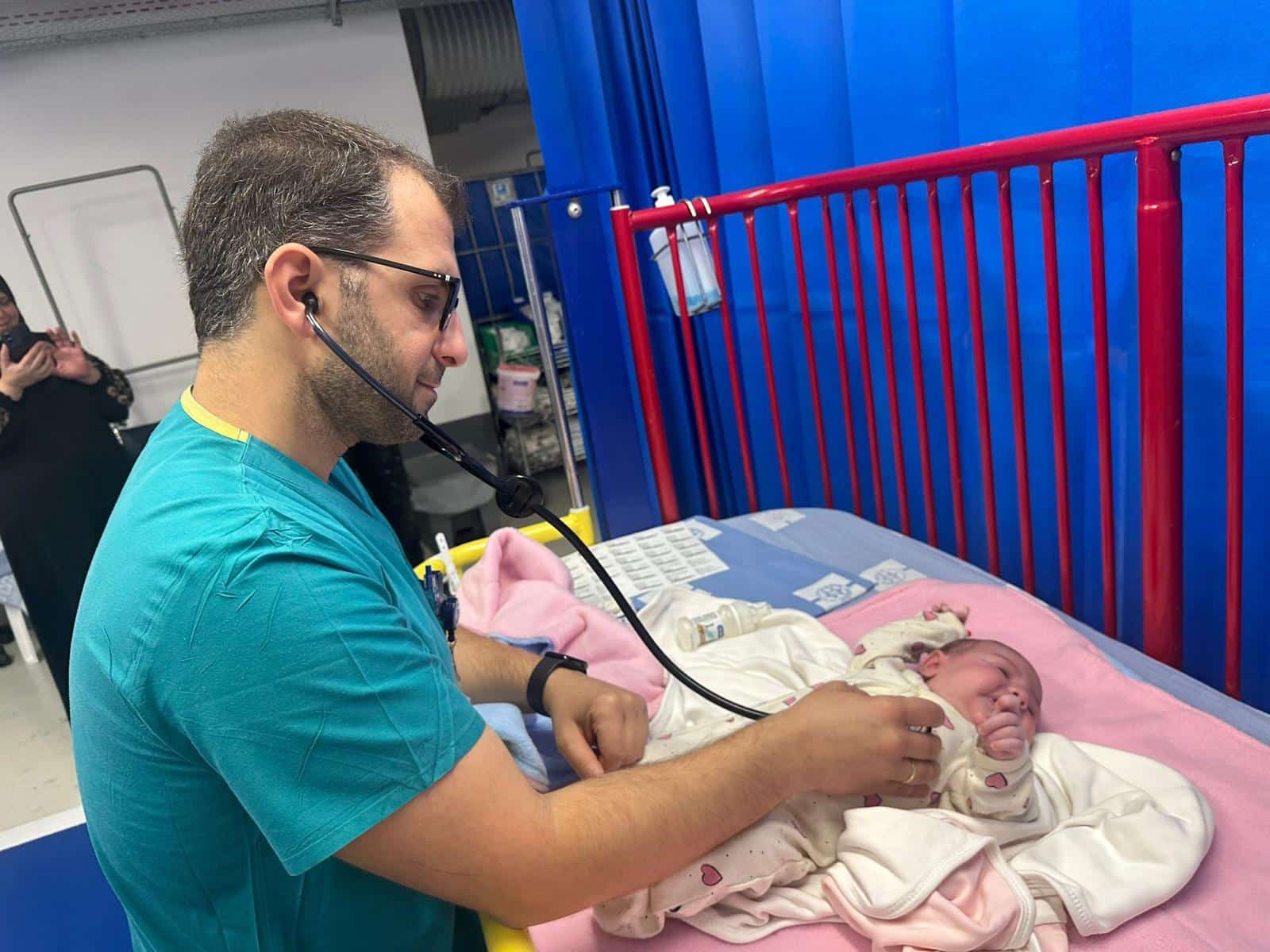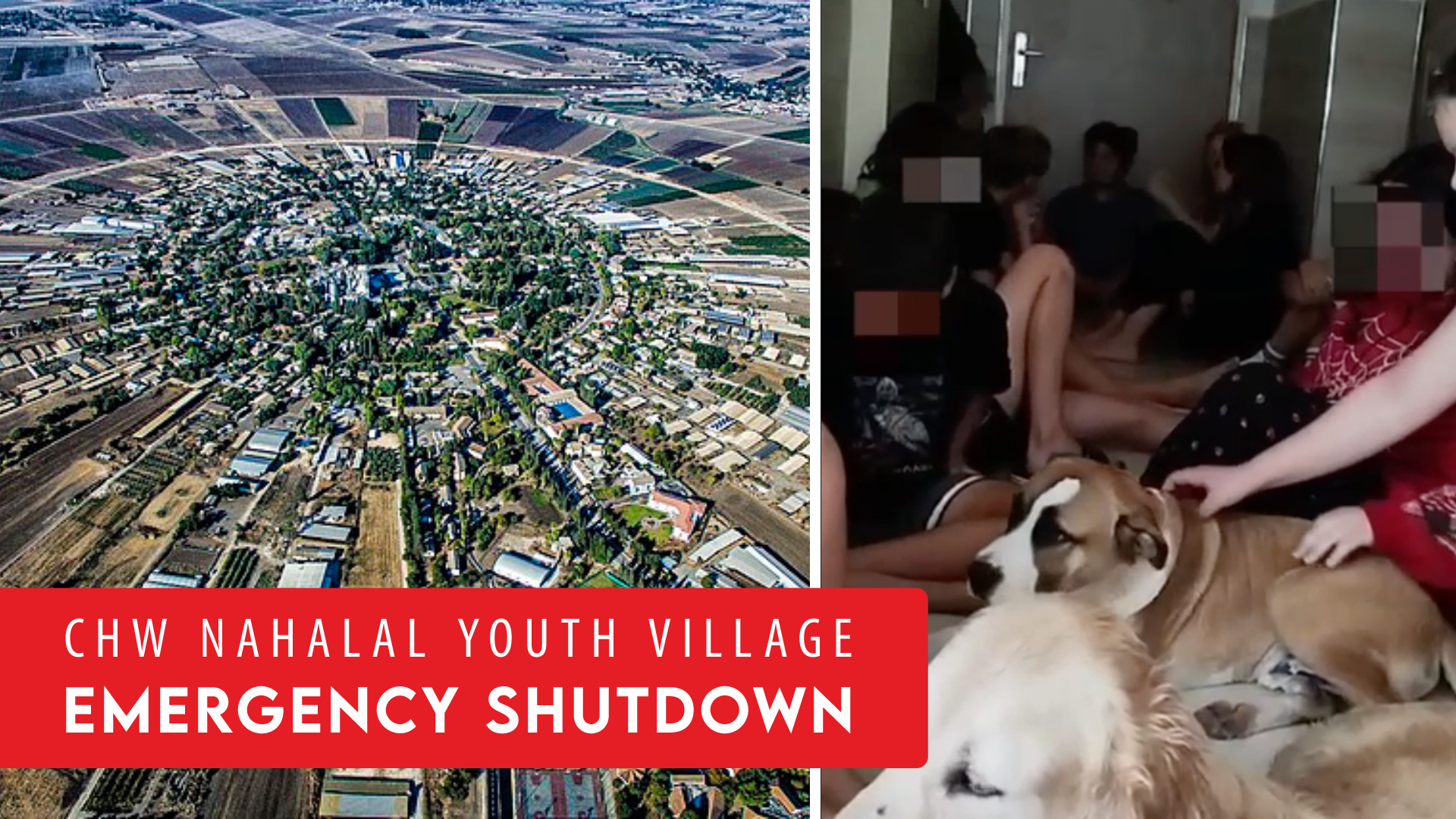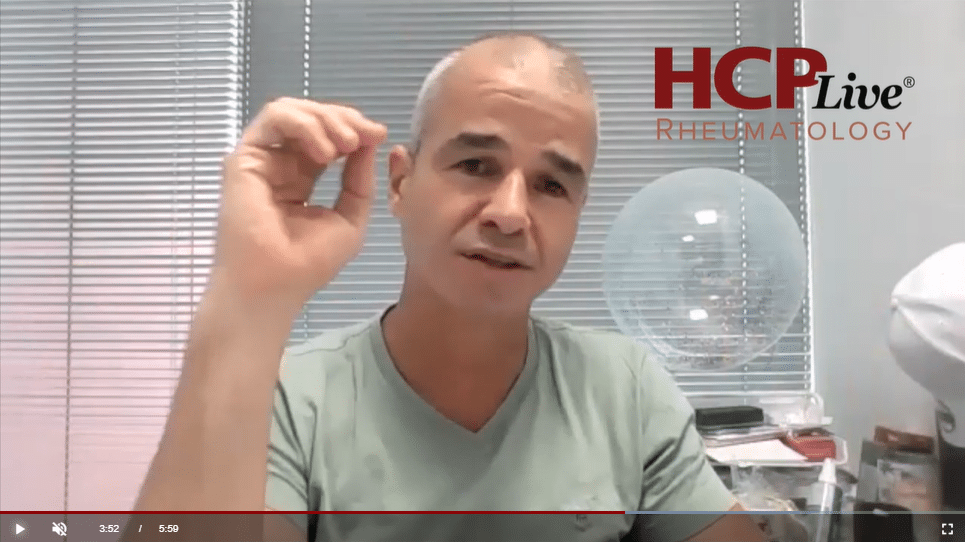Update from Hadassah Medical Organization
A 24-day-old baby is being treated at the Underground Emergency Hospital at the Gandel Rehabilitation Center at Hadassah Mt Scopus
“I feel safe here and watch from the sidelines as the team gives their heart and soul,” says the father of a 24-day-old baby girl being cared for underground at Hadassah Hospital on Mt. Scopus.
Hadassah CEO, Prof. Yoram Weiss, notes that the underground hospital is a spacious complex with 140 hospital beds located in the Gandel Rehabilitation Center, two floors below ground, which allows for treatment of all patients and all departments, even under rocket fire.
The Hadassah CEO also emphasized that the complex will also allow for treatment of patients on ventilators or those who need oxygen assistance. The facility is divided into areas according to the departments from which the patients were moved.
The 24-day-old baby’s condition has improved thanks to the round-the-clock care provided by the medical and nursing teams, for whom this is also a less familiar professional experience in their daily work routine.
Dr. Kobi Tabi, a pediatric specialist at Hadassah Mount Scopus: “The little one we are treating here is already much better. She is receiving intravenous antibiotics and I believe she will be discharged in the next few days. Despite the move from the pediatric ward, she is relaxed and has gotten used to the new place, as have the other patients in the children’s complex we have set up here.
“We, the entire team, have also adapted with a lot of positive thinking and feel at home here. The main thing is that everyone is safe and we can continue to treat her even during sirens and missile fire.”
“Our daughter was born completely healthy and everything was fine,” says the father of the family who lives in northern Jerusalem but who is now staying at his daughter’s bedside. “Then, out of nowhere, she developed a fever and it went up and up. We realized this was dangerous for our newborn and we ran with her to Hadassah Hospital Mount Scopus.
“From the moment they moved the pediatric department here, to the protected compound, we felt safer. We were surrounded by staff members working around the clock, in a new area that they hadn’t worked in until the war. It’s impressive and heartwarming. For them, the location doesn’t matter, what matters is the little patients who need to be treated.”
Under the threat of Iranian attacks, Hadassah hospitals on Mount Scopus and Ein Kerem are operating underground with 240 hospital beds, treating and saving lives.
Prof. Yoram Weiss, CEO of Hadassah Medical Center: “Within a short time of the first sirens sounding early Friday morning, dozens of staff members mobilized and ensured that the underground complexes at both Hadassah hospitals were opened and patients moved to them in exemplary order.
The underground emergency hospital in Mount Scopus was created, he said, in the first days after October 7th.
“On the first evening, we understood the national need for a secure complex,” says Prof. Weiss. “Through teamwork and enormous efforts – together with the members of the board of directors Hadassah, the Women’s Organization of America, Hadassah International and our donors around the world – we ensured the establishment of this complex under the Gandel Rehabilitation Center, which currently contains 140 beds.”
The Hadassah CEO emphasizes that an almost identical number of beds is also spread out in the underground complex at Hadassah Ein Kerem.
“The Ein Kerem hospital’s surgery complex is situated four floors underground, which allows it to continue operating even under missile attack. We are talking about almost 140 beds that allow patients to be transferred for treatment in the most protected and secure complex available.”
“We have maintained these complexes continuously, throughout the war, and kept them on full alert until the moment of truth,” explains Prof. Weiss. So within hours of the alarm sounding on Friday morning, dozens of staff members mobilized and ensured the opening of both complexes and the transportation of patients to them.”
CEO Weiss concludes: “In the near future, our teams will continue to treat patients in the underground complexes, with great sensitivity given the situation and always with respect for each patient.”








